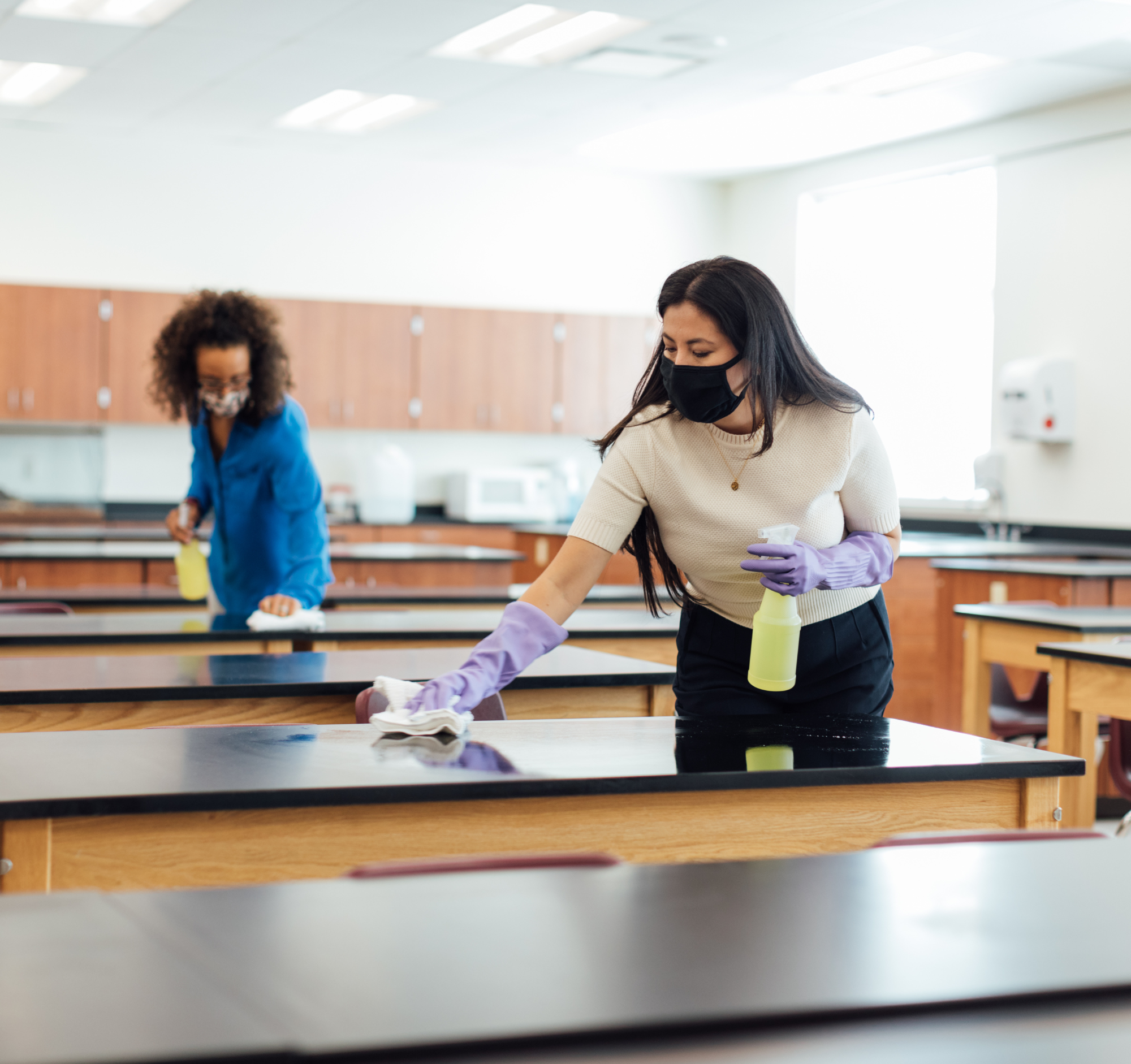

Homeschooling for Young People with Mast Cell Activation Syndrome
MCAS can create a challenging environment for children and young people who may struggle to attend a traditional school due to health issues or environmental triggers.
If your child has MCAS and isn’t well enough to attend school, or cannot tolerate triggers at school, there are other options to explore.
This page provides guidance on working with your child's school to ensure their needs are met, as well as information on homeschooling if it becomes the best option for your family.

Working with Schools to Support Your Child
Before considering homeschooling, it can be helpful to explore all possible ways to support your child within the school environment. UK schools are required to make reasonable adjustments for students with medical conditions or disabilities, including MCAS. The first step is to work with your child's school to ensure they are aware of your child's condition and can make accommodations.
Arranging a meeting with your child’s school and suggesting that you create a health care plan together can be a good first step. This will outline the steps the school should take to manage your child’s condition and any triggers they need to avoid (e.g., exposure to allergens, fragrances, or certain chemicals).
You may find our Freedom Kit useful, when creating this plan.

Request Reasonable Adjustments:
Under the Equality Act 2010, schools are required to make reasonable adjustments for students with medical conditions or disabilities. Depending on the severity of your child's condition, you can request accommodations such as modifications to their learning environment, regular breaks or rest periods.
The school may also be able to provide modifications to the school environment, such as removing triggers like perfumes or certain foods.
When you meet with the school, you could also talk to them about allowing your child to attend part-time, with a flexible schedule or remote learning on difficult days. Our guide to MCAS for teachers can be found here.

Education, Health and Care Plan (EHCP)
If your child’s condition significantly affects their ability to learn and engage in school, you can request an Education, Health and Care Plan (EHCP). This legal document outlines the extra support your child needs at school and how the local authority will help meet these needs.
An EHCP can provide additional resources such as specialist support, equipment, or one-to-one assistance.
If attending school in person isn’t feasible, you could ask about home tutoring or virtual learning. Some local authorities and schools offer home education services or distance learning options for children who cannot attend school for medical reasons.

When Homeschooling Becomes the Best Option
If your child is unable to attend school due to severe MCAS symptoms or environmental triggers, homeschooling might be the most appropriate option. Homeschooling allows you to create a controlled learning environment tailored to your child’s health needs. In the UK, parents have the legal right to educate their children at home and this is called Elective Home Education (EHE). In order to remove your child from school, there is a process that needs to be followed.
- Write a letter to your child’s headteacher stating that you intend to homeschool. Once they receive the letter, your child will be removed from the school’s register.
- While you are not legally required to inform the local authority, the school will do this on your behalf. The local authority may contact you to ensure that your child is receiving an appropriate education at home, but you are not required to follow the National Curriculum.
- Local authorities may request to review your homeschooling approach to ensure it meets legal standards. They may ask to see examples of your child’s work or discuss the education plan you have in place. However, there is no mandatory inspection process unless there are concerns about the quality of education.

Stages of Homeschooling: Primary
Homeschooling a child with MCAS will look different at the primary and secondary levels due to the varying academic requirements and development stages.
The primary stage focuses on foundational learning—reading, writing, and maths, along with a broad introduction to science, history, and geography. Homeschooling in the primary years can be relatively flexible. You may choose to use structured curriculums with lesson plans, play-based learning and online resources or tutoring services.
Some families choose to follow the National Curriculum, but this is not required.

Stages of Homeschooling: Secondary
As children move into secondary education, they may need a more structured approach and you’ll need to be mindful of the subjects required for qualifications like GCSEs, which include core subjects such as Maths, English, and Science. Homeschooling secondary-aged children may also involve ensuring they have access to practical assessments or exams, which can be arranged at exam centers.
You can enrol your child in online secondary schools that offer complete GCSE courses or for more flexibility, you can use tutors, online resources, or independent study to prepare for exams.
If your child is planning to take GCSEs, they can be registered as a private candidate and sit exams at an approved exam centre.

Costs of Homeschooling
Homeschooling can be affordable, but there are potential costs to consider depending on the resources you use. Some typical expenses include:
Learning Materials: You may need to purchase textbooks, workbooks, or online courses. Many free resources are available, but some structured curriculums may have costs.
Tutors or Online Courses: Hiring tutors for specific subjects or enrolling your child in online schools can be more expensive, especially at the secondary level.
Examination Fees: If your child is taking GCSEs or other qualifications, there will be fees associated with registering as a private candidate and sitting the exams.

Useful Resources for Homeschooling
If you do decide that homeschooling is the best option for your family, there are resources available online to provide support. We have detailed some of these below.
BBC Bitesize: Free educational resources for primary and secondary students.
Twinkl: Downloadable lesson plans and worksheets for all age groups.
Oak National Academy: Free online lessons for UK students from Reception to Year 11.
Seneca Learning: A free online learning platform offering interactive courses for primary and secondary students, covering subjects like Maths, Science, English, and more. Great for revision and learning at your own pace.
TopMarks: Offers a wide range of interactive educational games and resources for students aged 3 to 14. Covers Maths, English, Science, and other key subjects.
Oxford Owl: Free eBooks, interactive learning tools, and expert advice to help children with reading and writing, particularly for primary-aged students.

Legal Advice and Support
Education Otherwise: A UK-based organisation that provides legal advice and support for home-educating families.
Home Education UK: A comprehensive resource on homeschooling in the UK, including guides on legal obligations and support.
Arranging education for children who cannot attend school because of health needs: This guidance outlines how local authorities and schools can best support children who cannot attend school because of physical or mental health needs.
Homeschooling a child with MCAS requires careful planning but can provide a safe and nurturing environment tailored to their unique needs.
Whether you’re collaborating with your child’s school to create accommodations or taking the leap into homeschooling, remember that you are your child’s best advocate. Seek out support networks, utilise available resources, and don't hesitate to ask for help when needed.
"It took a long time for us to make the move to homeschooling, it's a huge emotional decision for both parent & child with a wide range of considerations. When my child was no longer able to physically attend school, it felt like it was an opportunity to prioritise their health & mental wellbeing whilst still being able to access an education. We've had to decondition our thinking about how things normally work & accept that their path is different to most other children. That does not mean they cannot achieve their potential nor work towards creating a rewarding career."
Become a friend
Sign up to become a Friend of Mast Cell Action so we can keep you up to date on our progress and on how to get involved in our latest campaigns and initiatives.
Donate
Mast Cell Action relies entirely on the generosity of people like you. Please make a donation now and together we can make a difference to those affected by MCAS.







